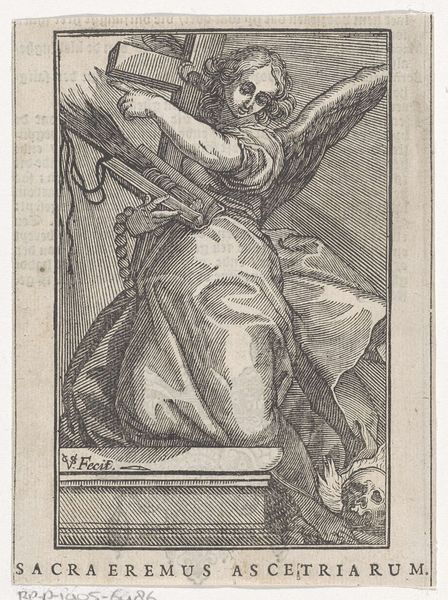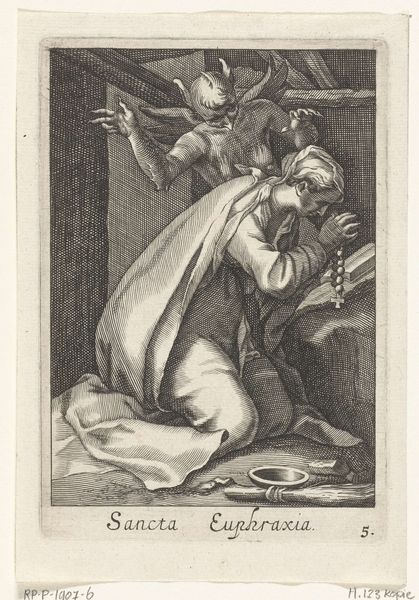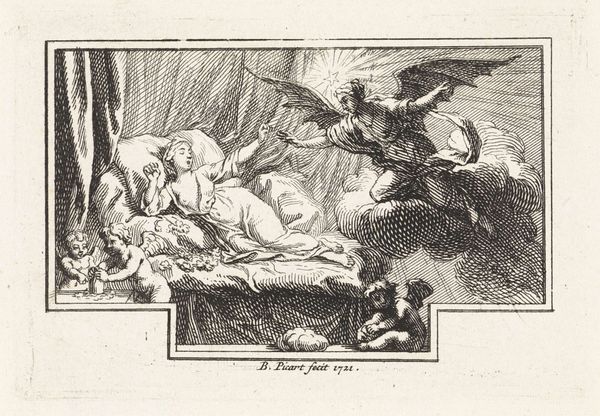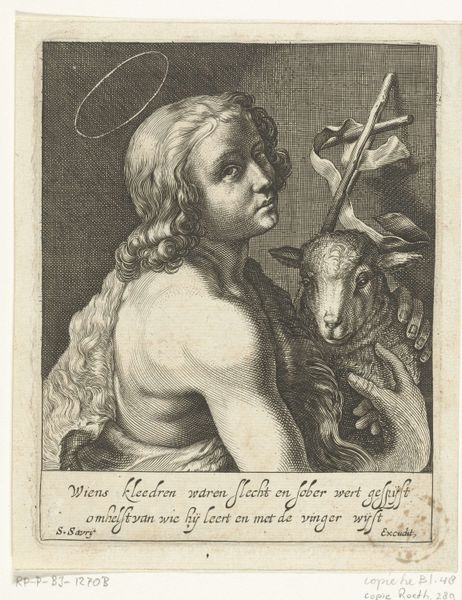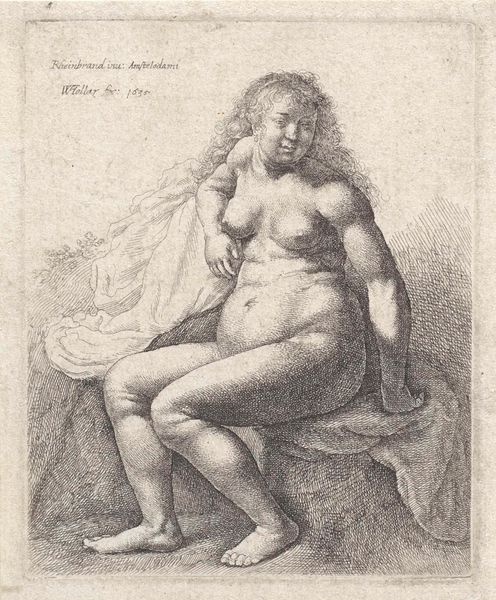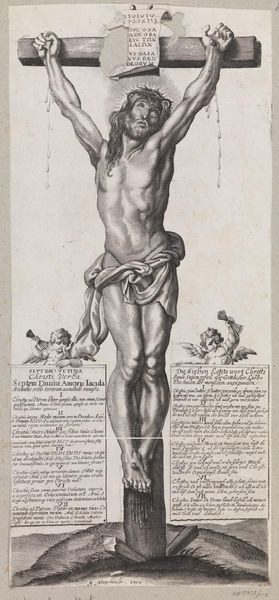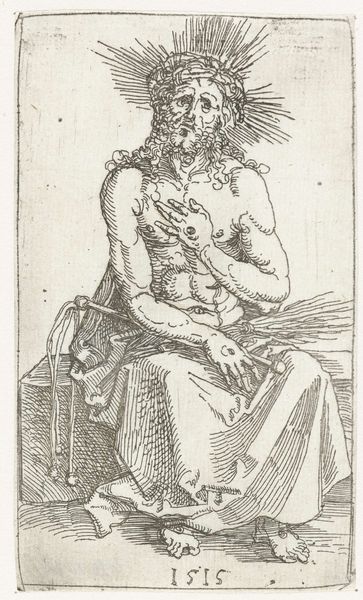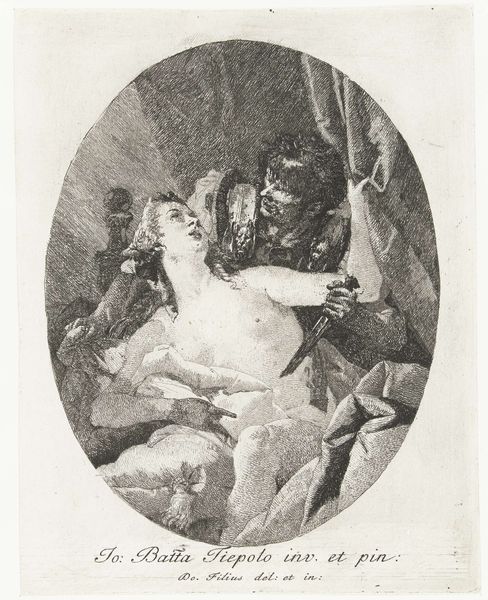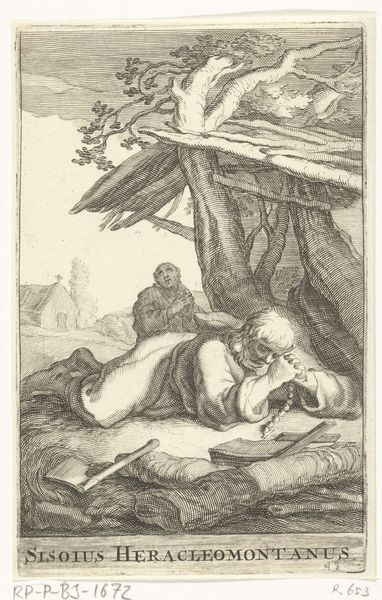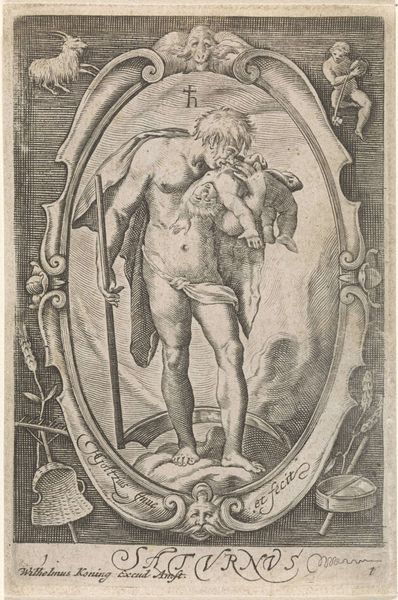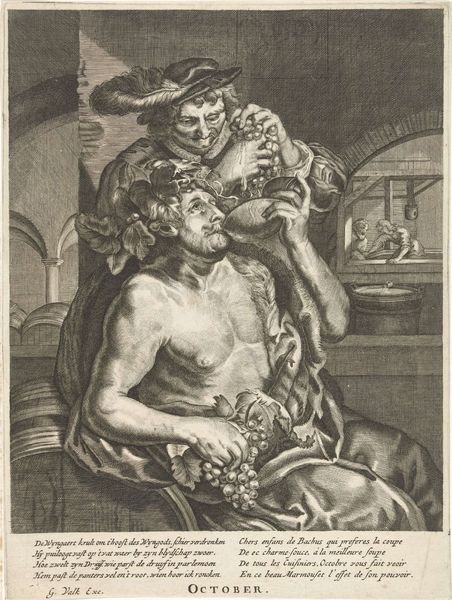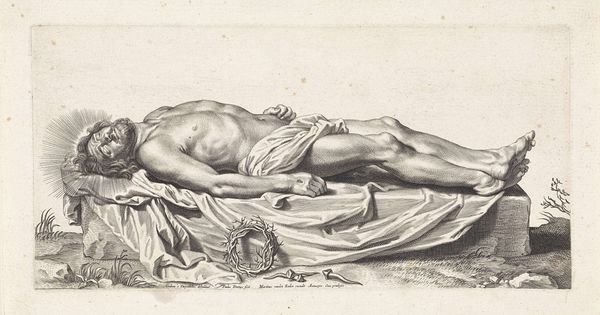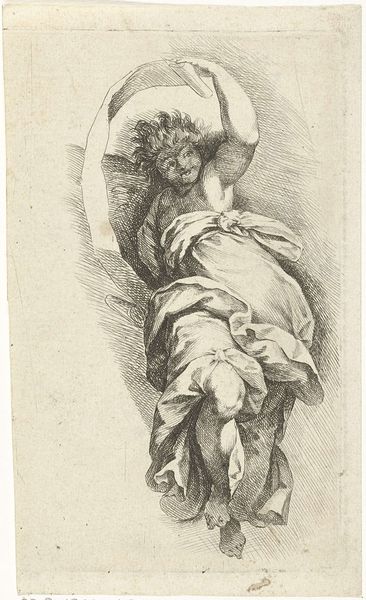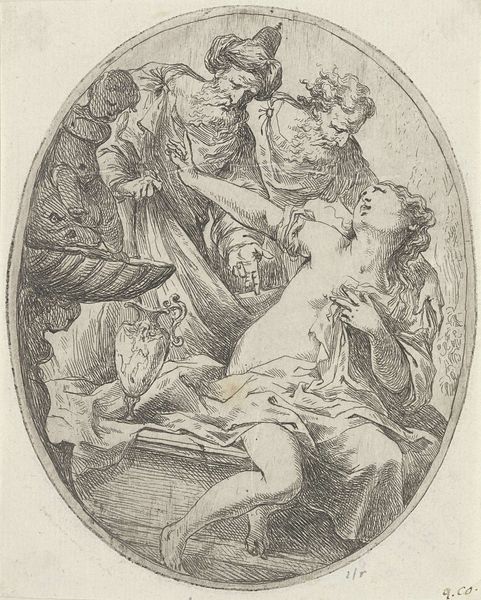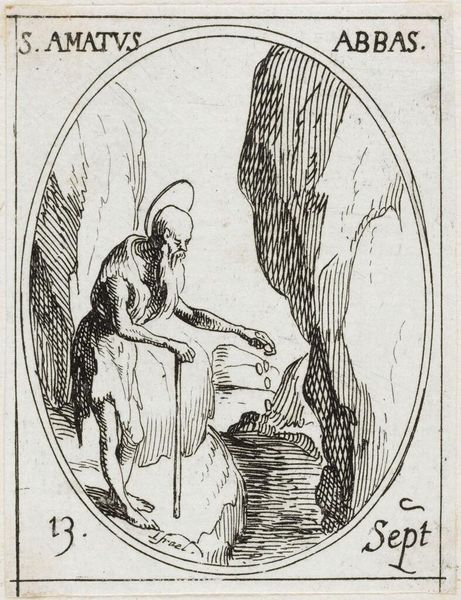
print, engraving
#
portrait
#
baroque
# print
#
charcoal drawing
#
figuration
#
pencil drawing
#
line
#
portrait drawing
#
academic-art
#
engraving
Dimensions: height 115 mm, width 90 mm
Copyright: Rijks Museum: Open Domain
Editor: We’re looking at "A Monk Flagellating Himself," a print by Jacob Gole, dating perhaps from 1670 to 1724, housed in the Rijksmuseum. It’s… intense. The image is stark and a little disturbing. What strikes you most about this piece? Curator: What immediately grabs me is the socio-political commentary inherent in its depiction of religious fanaticism. The print coincides with the era of growing Enlightenment skepticism, challenging the power structures of the Church. Consider the period – how might such an image have been perceived in the Dutch Republic, grappling with religious diversity and questioning established dogma? Editor: So, this isn’t just a depiction of piety, it’s potentially a critique? Curator: Precisely! The exaggeration of the monk's self-inflicted pain, coupled with the title "La Superstition," suggests an argument against blind faith. Who was the intended audience? Was this a piece circulating among intellectual circles, reinforcing their secular viewpoints, or was it a more widespread critique aimed at stirring public opinion? Editor: I didn't consider the print’s role in a larger societal debate. Thinking about the intended audience really shifts my perception of the work. Curator: Art doesn’t exist in a vacuum. It's a product of its time, actively engaging with the social and political currents that shaped its creation and reception. By exploring that context, we can understand it more fully. Editor: That's fascinating, considering the museum context today; the print might serve to educate us on critical thinking, which brings it full circle, in a way. Curator: Indeed. Analyzing how museums frame such controversial pieces reveals shifts in societal attitudes towards religion and authority over centuries. There's much more here than just an image of a monk.
Comments
No comments
Be the first to comment and join the conversation on the ultimate creative platform.
